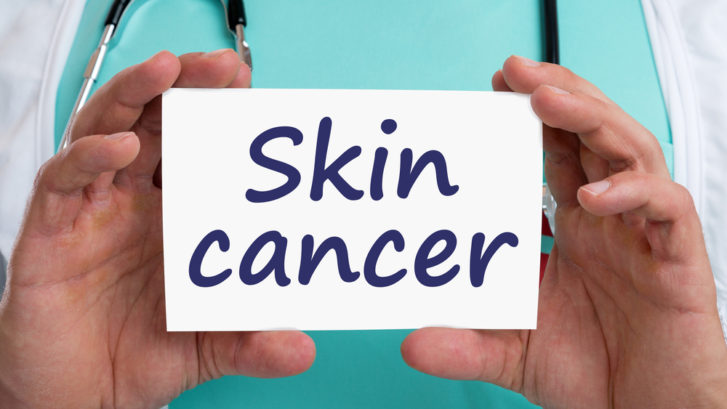
Skin Cancer Treatments in Waldorf, MD
Skin cancer is as real as it is scary. But both non-melanoma and melanoma skin cancer (early stage or late stage), the two most common types of skin cancer, can be successfully treated in a variety of ways if diagnosed and taken care of in a timely manner.
The choice of treatment to undergo depends on the location and size of the tumor as well as if it has metastasized and spread elsewhere.
These treatments typically include four different procedures—including immunotherapy and chemotherapy—but let’s zero in on two of them: surgery and radiation therapy.
Surgery
There are a few different types of surgeries you may undergo, depending on how thin the tumor is and the size of the lesion.
One option is a simple excision (removal) of the lesion and a region of unaffected skin surrounding.
Another is curettage and electrodesiccation (scraping and cauterizing), which works especially well for small basal cell and squamous cell cancers (non-melanoma).
There is also what is called Mohs surgery, a microscopically controlled procedure, an operation designed for basal and squamous cell carcinoma that won’t leave much scarring.
Superficial Radiation Therapy
Superficial Radiation Therapy is a non-surgical solution for basal cell carcinoma and squamous cell carcinoma treatment, which does not require the use of anesthetics.
The American Academy of Dermatology supports SRT treatment as an option for the treatment of basal cell carcinoma and squamous cell carcinoma cancers.
Because more than half of newly diagnosed patients are over 60 and often have a higher risk for surgical complications due to diabetes, heart disease and other medical conditions, SRT’s ability to eliminate the risks for post-surgical infections and complications is ideal.
Conclusion
It is important to remember that the odds are on your side when it comes to skin cancer. But it is imperative that the disease is caught early and the proper treatment is chosen.
Be sure to engage in self-examinations of yourself as often as you can and avoid sun damage to the best of your ability.
Free skin checks are available at Mid-Atlantic Skin for new patients
